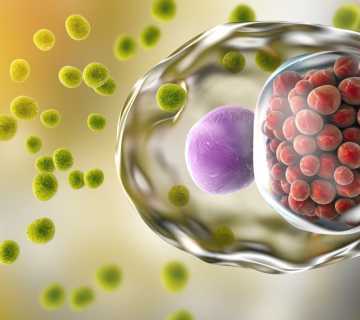Does Chlamydia Cause Infertility in Males?
Chlamydia is a topic that often comes up when people talk about sexual health, but many guys wonder: Can it really affect my ability to have kids? The answer is yes, Chlamydia can cause infertility in males if it’s not caught and treated in time. But don’t worry—this article is here to break it all down for you in a way that’s easy to understand. We’ll explore what Chlamydia is, how it messes with male fertility, and what you can do about it. Plus, we’ll dig deeper than most articles out there, giving you the latest info, busting myths, and sharing practical tips to keep you healthy.
Understanding Chlamydia
What is Chlamydia?
Chlamydia is an infection caused by a tiny bacterium called Chlamydia trachomatis. It’s one of the most common sexually transmitted infections (STIs) out there. Imagine it like an uninvited guest that sneaks into your body during sexual activity—vaginal, anal, or oral sex—and sets up camp without you even noticing. What’s tricky about Chlamydia is that it’s often “silent,” meaning many people don’t feel sick or see signs of it right away.
How is Chlamydia Transmitted?
You can catch Chlamydia through direct contact with infected fluids, like semen or vaginal secretions, during unprotected sex with someone who has it. It can infect areas like the penis, anus, urethra (the tube you pee through), or even your throat. But don’t stress—it doesn’t spread through things like hugging, sharing a drink, or sitting on a toilet seat. It’s all about sexual contact.
Here’s a quick rundown:
-
- ✔️ Yes, it spreads through: Unprotected vaginal, anal, or oral sex.
-
- ❌ No, it doesn’t spread through: Kissing, shaking hands, or casual touch.
Prevalence of Chlamydia in Males
Chlamydia is super common, especially among teens and young adults. In the U.S., the Centers for Disease Control and Prevention (CDC) reported over 1.7 million cases in 2018, and experts think the real number is even higher because so many people don’t get tested. Guys make up a big chunk of those cases, and if it’s not treated, it can lead to serious problems—like infertility. So, yeah, it’s something worth knowing about!
Symptoms of Chlamydia in Males
Common Symptoms
When Chlamydia does show up, it usually takes 1 to 3 weeks after exposure for symptoms to kick in. For guys, here’s what you might notice:
-
- A burning or stinging feeling when you pee.
-
- Weird discharge from your penis—it could be clear, white, or cloudy.
-
- Pain or swelling in your testicles (though this is less common).
-
- Itching, discomfort, or discharge around your anus if you’ve had anal sex.
Think of it like your body waving a little red flag, saying, “Hey, something’s not right down here!”
Asymptomatic Cases
Here’s the catch: Up to 50% of guys with Chlamydia don’t feel anything. That’s right—no pain, no discharge, nada. This is why it’s so sneaky. You could be walking around with it, passing it to others, or letting it quietly cause damage without a clue. That’s what makes regular checkups so important.
When to See a Doctor
So, when should you head to the doc? Here’s your checklist:
-
- ✔️ You’ve got symptoms like burning pee or discharge.
-
- ✔️ You’ve had unprotected sex with someone new or someone who might have an STI.
-
- ✔️ You’re sexually active with multiple partners and haven’t been tested lately.
Even if you feel fine, don’t skip the doctor. Catching it early can save you a lot of trouble later.
How Chlamydia Affects Male Fertility
The Link Between Chlamydia and Infertility
Does Chlamydia cause infertility in males? Yes, but it’s not like flipping a switch. It’s more like a slow burn. If untreated, Chlamydia can lead to a condition called epididymitis—inflammation of the epididymis, the tube behind your testicles that stores and carries sperm. When this tube gets messed up, it can block sperm from getting out, making it harder to have kids.
Mechanisms of Infertility
Let’s break it down step-by-step:
-
- Infection Spreads: Chlamydia starts in the urethra and can travel up to the epididymis.
-
- Inflammation Kicks In: The bacteria cause swelling and irritation.
-
- Scarring Happens: Over time, this inflammation can leave scars that block the tube.
-
- Sperm Get Stuck: If sperm can’t move through, they can’t reach an egg.
-
- Quality Drops: Chlamydia might also damage sperm, making them less healthy or slower swimmers.
Picture it like a clogged pipe—nothing’s flowing where it needs to go. Studies, like one from Human Reproduction, show that guys with past Chlamydia infections often have lower sperm counts and weaker sperm movement.
Statistics and Research Findings
The numbers don’t lie:
-
- The CDC says untreated Chlamydia can cause permanent reproductive damage.
-
- A Journal of Andrology study found Chlamydia can mess with sperm DNA, lowering fertility chances.
-
- Research estimates that 10-30% of male infertility cases might be tied to past infections like Chlamydia.
The good news? If you catch it early, treatment can stop this damage in its tracks.
Diagnosis and Treatment
Getting Tested for Chlamydia
Worried you might have Chlamydia? Testing is easy. You’ll either:
-
- Pee in a cup (a urine test checks for the bacteria).
-
- Get a quick swab from your penis or anus (don’t worry, it’s fast).
You can get tested at a doctor’s office, clinic, or even use an at-home kit. It’s private, quick, and worth it for peace of mind.
Treatment Options
Chlamydia is treatable with antibiotics—usually azithromycin (one big dose) or doxycycline (pills for a week). Here’s the deal:
-
- ✔️ Take all the medicine, even if you feel better fast.
-
- ❌ Don’t skip doses—it could let the infection stick around.
Most guys clear it up in 7-10 days. Follow up with your doctor if symptoms hang on.
Importance of Partner Notification
Found out you have Chlamydia? Tell your partner(s). It’s not fun, but it’s the right thing to do. They need to get tested and treated too, or you could end up passing it back and forth like a bad game of ping-pong. Here’s how to handle it:
-
- Be honest: “Hey, I tested positive for Chlamydia. You should get checked.”
-
- Keep it calm: It’s common, treatable, and not a blame game.
-
- Offer support: Suggest going to the clinic together.
Prevention and Safe Practices
Safe Sex Measures
Stopping Chlamydia before it starts is all about smart choices:
-
- ✔️ Use condoms every time—for vaginal, anal, and oral sex.
-
- ✔️ Stick to one partner who’s been tested and is clear.
-
- ❌ Don’t assume someone’s “clean” just because they look healthy.
Condoms aren’t foolproof, but they cut your risk big-time.
Regular STI Screening
Even if you’re symptom-free, get tested:
-
- Every 6-12 months if you’ve got multiple partners.
-
- After any unprotected hookup with someone new.
Think of it like a routine oil change for your car—it keeps things running smoothly.
Communication with Partners
Talking about STIs can feel awkward, but it’s a game-changer. Try this:
-
- “Have you been tested recently? I got checked last month.”
-
- “Let’s get tested together before we ditch the condoms.”
Open chats build trust and keep you both safe.
Myths and Misconceptions
Common Myths About Chlamydia and Infertility
There’s a lot of bad info out there. Let’s clear it up:
-
- Myth: “Chlamydia is just a women’s problem.”
-
- Fact: Nope! It hits guys just as hard and can mess with fertility.
-
- Myth: “Chlamydia is just a women’s problem.”
-
- Myth: “No symptoms means no Chlamydia.”
-
- Fact: Half of infected guys feel nothing, but damage can still happen.
-
- Myth: “No symptoms means no Chlamydia.”
-
- Myth: “Once it’s treated, infertility is impossible.”
-
- Fact: Treatment stops damage, but if scarring’s already there, it might not reverse.
-
- Myth: “Once it’s treated, infertility is impossible.”
Debunking the Myths
Don’t let rumors trick you. Chlamydia’s real, it’s common, and it’s manageable with the right steps. Got doubts? Ask a doctor, not your buddy’s cousin.
Long-Term Effects and Complications
Beyond Infertility: Other Health Issues
Infertility isn’t the only worry. Untreated Chlamydia can also cause:
-
- Chronic Pain: Ongoing discomfort in your testicles or pelvis.
-
- Reactive Arthritis: Joint pain and swelling (rare but serious).
-
- Higher HIV Risk: Chlamydia makes it easier to catch HIV if exposed.
It’s not just about babies—it’s about your whole body.
Impact on Relationships and Mental Health
An STI diagnosis can hit hard emotionally:
-
- You might feel ashamed or scared to tell your partner.
-
- Stress could strain your relationship.
-
- Anxiety about fertility might creep in.
But here’s the thing: Millions deal with STIs. You’re not alone. Talk to a friend or counselor if it’s weighing you down.
Personal Stories and Case Studies
Hypothetical Case Study 1: Jake’s Quick Fix
Jake, 22, hooked up without a condom at a party. Two weeks later, peeing hurt, and he saw some discharge. Panicked, he hit the clinic, tested positive for Chlamydia, and got antibiotics. He told his partner, they both got treated, and he dodged any lasting issues. Lesson? Act fast.
Hypothetical Case Study 2: Mark’s Silent Struggle
Mark, 35, had Chlamydia years ago but never knew—no symptoms. When he and his wife couldn’t conceive, tests showed scar tissue from an old infection blocking his sperm. They’re exploring fertility options now, but Mark wishes he’d gotten checked sooner. Lesson? Silence doesn’t mean safe.
Resources and Support
Where to Get Help
Need help? Check out:
-
- Your doctor or a local clinic.
-
- Planned Parenthood—they’re pros at STI stuff.
-
- Free STI hotlines (like 1-800-232-4636 from the CDC).
Online Resources
Learn more here:
Conclusion
Chlamydia can cause infertility in males, but it doesn’t have to. Catch it early with testing, treat it with antibiotics, and protect yourself with safe sex and honest talks. It’s not just about making babies—it’s about staying healthy for life. Got questions? Hit up a doctor or clinic. Your future self will thank you.
Interactive Content
Take this quick quiz to check your risk:
-
- Have you had unprotected sex with a new partner in the last 6 months?
-
- Yes / No
-
- Have you had unprotected sex with a new partner in the last 6 months?
-
- Noticed any burning when you pee or weird discharge lately?
-
- Yes / No
-
- Noticed any burning when you pee or weird discharge lately?
-
- Been tested for STIs in the past year?
-
- Yes / No
-
- Been tested for STIs in the past year?
Results:
-
- “Yes” to 1 or 2, or “No” to 3? Time to book a test.
-
- All “No” or “Yes” to 3? You’re on track—keep it up!
Stay curious, stay safe, and take charge of your health!



No comment